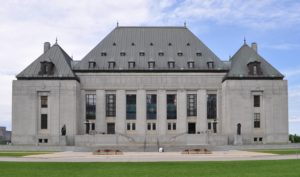
(NAFB) – Canada’s Supreme Court has upheld the constitutionality of the 2018 Greenhouse Gas Pollution Pricing Act.
Ontario, Alberta and Saskatchewan have been legally challenging the Act since it’s inception. But late last week, of the six Supreme Court judges, two were against it, and a third judge dissented in part. So, a majority found the carbon tax law was constitutional, ruling reduced greenhouse gas emission is a matter of national concern, and that the law is focused on that purpose.
Shortly after last week’s Supreme Court decision, Scott Moe, the Premier of Saskatchewan said any legal avenues against the carbon tax have now been exhausted.
The Canadian government plans to increase the current carbon tax levy by $15 per carbon-ton per year, until it hits $170 per ton, when levy fees will be reviewed.
Grain drying with natural gas or propane, and fertilizers are areas of major concern for Canadian farmers. Urea, as well as anhydrous ammonia, are produced from natural gas, making them subject to the carbon tax. Ryan Bender is a cash crop farmer in Alberta.
Conversely, the carbon tax does not apply to diesel fuel used for on-farm equipment. And there are carbon tax rebates available for farm equipment purchases that can improve energy efficiency, and on irrigation equipment upgrades to improve water use efficiencies. There are also tax rebates on grid-connected solar panel systems generating electricity to reduce on-farm emissions.
This issue is expected to be a primary issue in the next federal election. Prime Minister Justin Trudeau’s opposite number, Conservatives party leader Erin O’Toole, has repeatedly said that he would repeal the Greenhouse Gas Pollution Pricing Act if his Conservative Party wins the next federal election.
